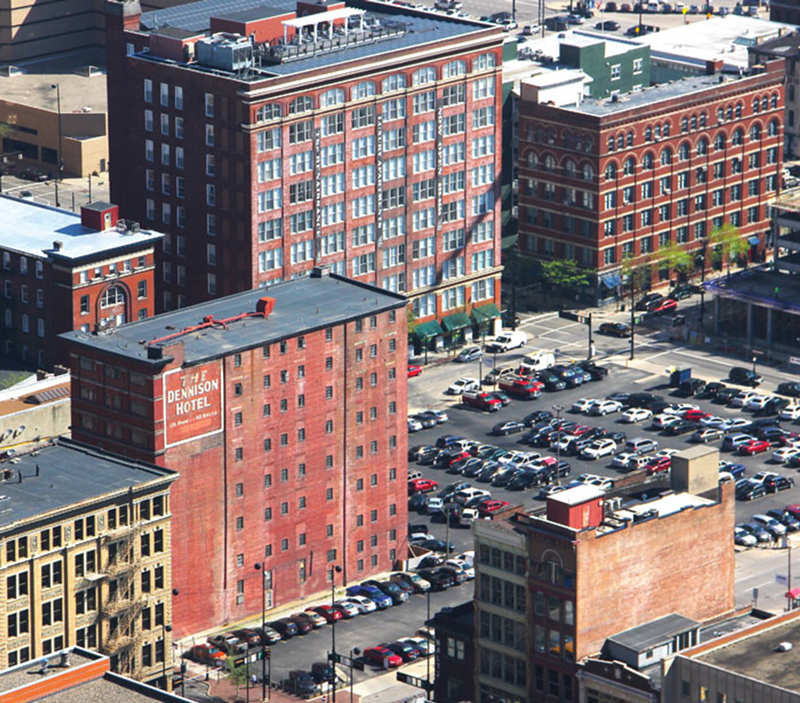
After a nearly four-hour meeting, Cincinnati's Historic Conservation Board adjourned this afternoon without voting on Columbia REI, LLC's application to tear down the historic Dennison building downtown at 716-718 Main St.
That application has caused controversy. Columbia, owned by the powerful Joseph family, says it would be too expensive to save the building and would like to build a headquarters for an as-yet unidentified Fortune 500 company on the site. But preservationists say the building, which was designed by the firm of noted architect Samuel Hannaford, is a vital part of downtown's urban fabric.
Representatives for Columbia and the Joseph family presented their case to five members of the seven-member board. The group called a number of experts they've hired while they've owned the building to give evidence they say shows the building can't be redeveloped in an economically feasible way due to its poor condition and structural attributes.
Most of the presentation restated the key points of this assertion in greater detail, but there was at least one new revelation: how the Cincinnati City Center Development Company, which purchased the building for $1.2 million and then sold it to Columbia for $740,000, recouped money on the deal. Representatives for the Joseph family say the group paid 3CDC further development costs after the initial sale, making up the missing money.
The meeting had its fair share of contention: Columbia's attorney Fran Barrett moved to have Cincinnati Urban Conservator Beth Johnson's testimony stricken from the proceedings. Barrett said that Johnson has shown "extreme prejudice and bias" and that the Josephs "have a stacked deck against us going in" to their demolition application.
Johnson last month wrote a report taking staunch issue with the Josephs' assertion that anything other than demolishing the building would present the company with an economic hardship, pointing out the building's sound structural condition and the fact that studies on the economic feasibility of redevelopment of the building didn't take into account historic state tax credits and other incentives.
Lance Brown, the executive vice president of Beck Consulting, which drew up the economic feasibility report, told the board that no normal type of use — apartments, condos, office space — was feasible for the Dennison. However, when pushed by the board, Brown admitted he wasn't specifically familiar with incentives like state Historic Preservation tax credits, LEED tax credits, or city grants and tax credits that could have made the project more feasible.
Multiple board members also took issue with Brown's use of the term "flophouse" to describe the Dennison's former life as a single room occupancy hotel. Brown cracked that he got his understanding of that term from "extensive research on Wikipedia and Google."
Board member Judith Spraul-Schmidt chided Brown for using the term, saying that such housing was designed to be "decent and safe."
The board will work with attorneys representing the Josephs and opponents of the demolition application to set the next hearing, at which those seeking to save the Dennison will make their case.





